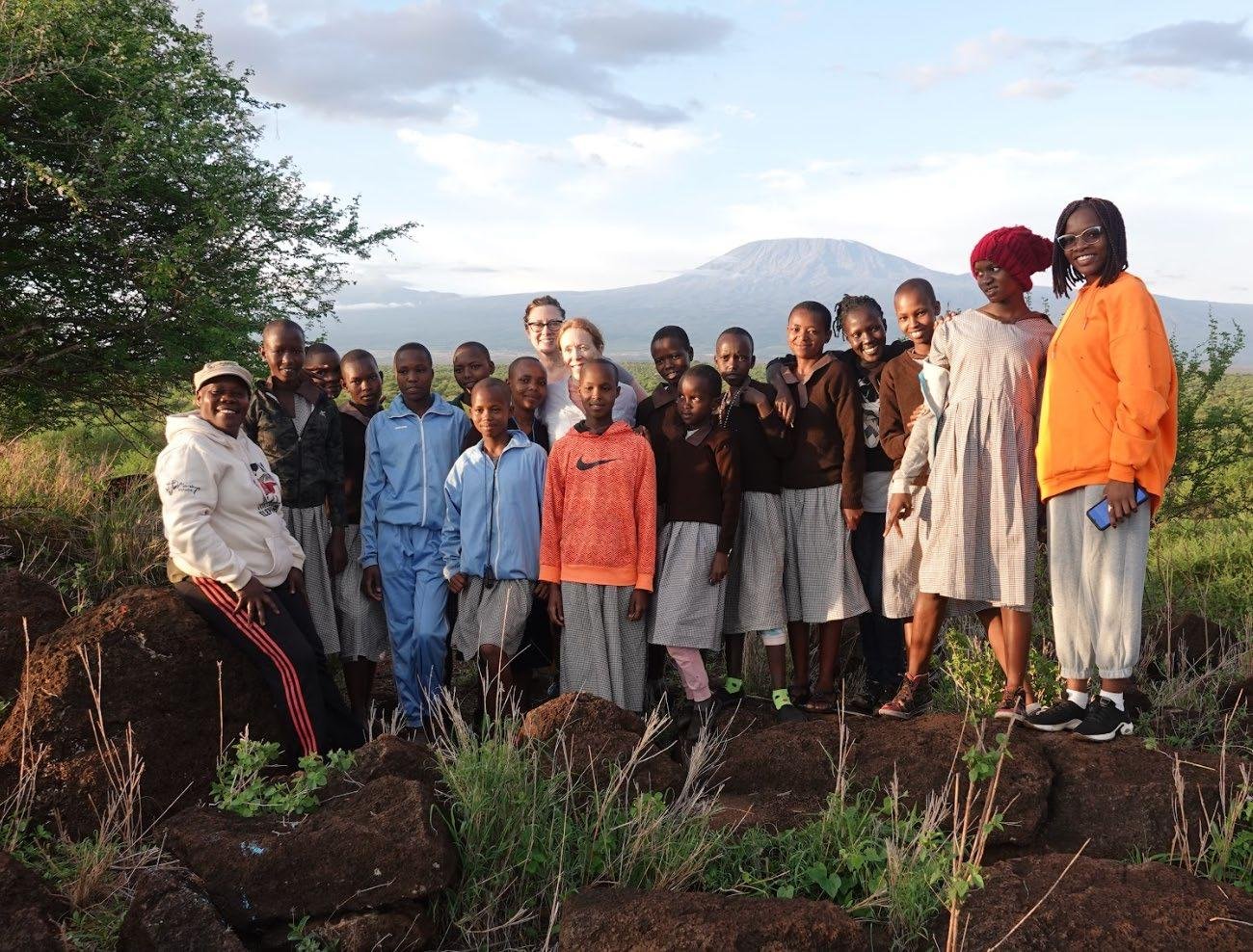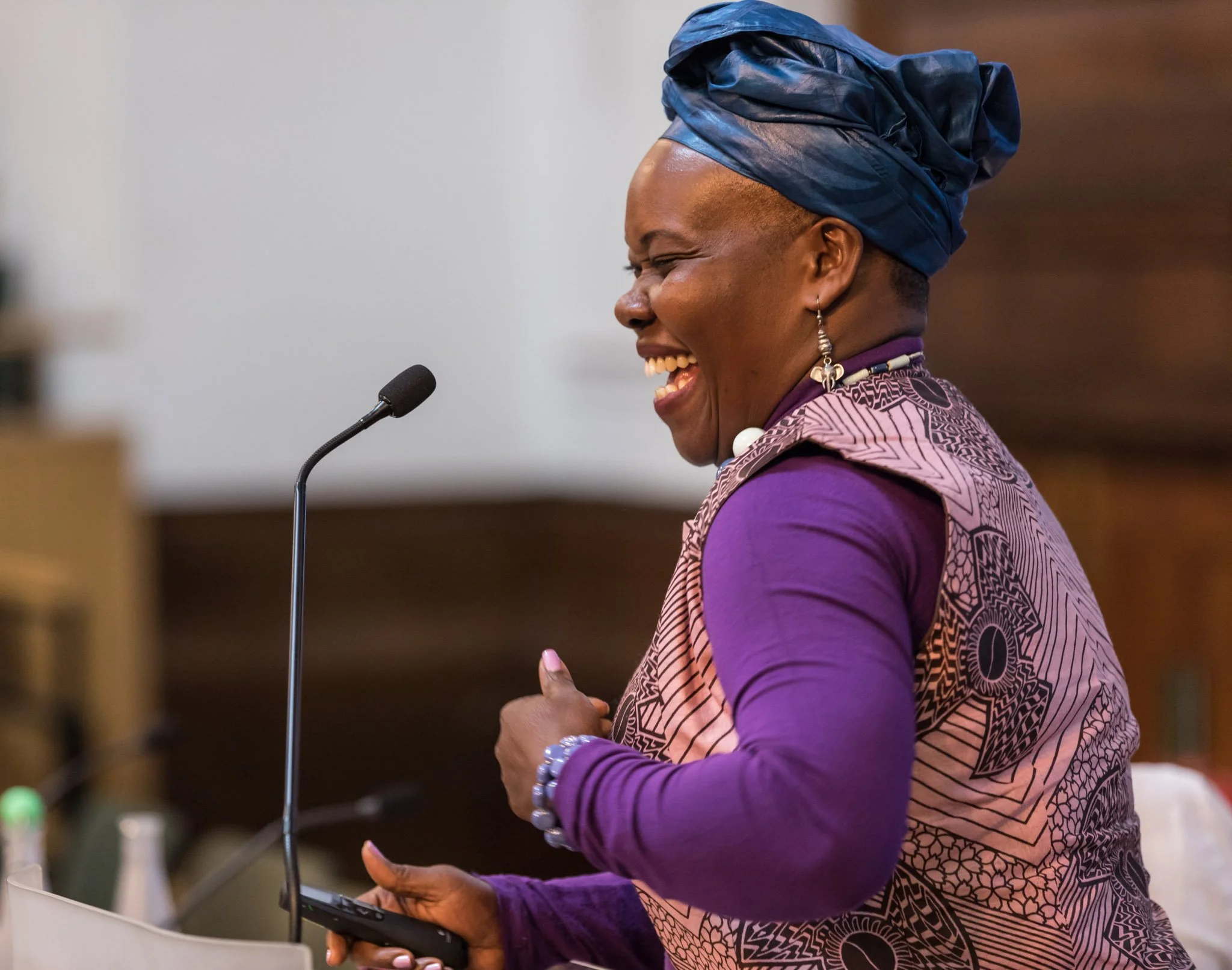In Conversation with Dr. Winnie Kiiru
Introducing Dr. Winnie Kiiru, a distinguished leader in Kenyan conservation, who’s passionately committed to providing African people, especially women and girls, with the education and tools they need to succeed in wildlife management. Dr. Kiiru credits her upbringing for her early passion for conservation and protecting the natural world around her. “I had what I considered to be a normal childhood in touch with nature every day, picking firewood from the trees. My community is associated with vast wildlife and Mount Kenya, the second-highest mountain in Africa and the only place where you can see snow on the equator. But our colonial history means that many African people don’t see things like hiking the mountains as something they can do. For many African women especially, we stay away from those wonderful creations.” Kiiru has made it a point to traverse landscapes across the continent, having climbed Mount Kenya and the Aberdare ranges several times and conquering the tough climb to the top of Mount. Kilimanjaro, the highest mountain in Africa, in 2017.
As a child, she came to understand the value of practical, locally-oriented education and the shortcomings of the lessons inside the classroom. She recalls the difference between learning facts about giraffe locomotion in her high school textbook and visiting the national park with her father to see one in person. “I couldn’t believe the animal I saw in front of me was the same one in my textbook, and finally it all clicked,” Kiiru says. “When I studied biology, my home environment was never used as an example. The books we read and information we crammed were put together by people trying to educate us, but it lacked any context and left little room for interpretation of that knowledge.”
Dr. Winnie Kiiru (far left) with a group of Masai girls attending workshops at Oldonymusa Camp outside Amboseli National Park.
Even with this insight, Dr. Kiiru feels incredibly privileged for her education and how it has afforded her many opportunities. She is a wildlife biologist with a background in research, policy, advocacy, and managing wildlife in human-dominated landscapes. “It’s not a regular thing [for a Kenyan woman] to be able to study elephants up to PhD level.” Kiiru says.
Her life-long mission is to bring her knowledge to the various communities she works with and to center conservation around Africans and their shared space with animals and the natural environment. She does this by addressing the issue of educating Kenyan students in English. Her goal is to revolutionize the school system to translate educational materials and exams into their native language.
“These students don’t hear English anywhere except for school so catering their education to them will eliminate the language challenge so they can focus on understanding concepts. Education needs to make you a better person in the context in which you live.”
Driven by her passion to acknowledge local knowledge in ways that weren’t available to her, Dr. Kiiru founded CHD Conservation Kenya. This organization is dedicated to public enlightenment, embracing Kenya’s rich natural resources and heritage, and people-centered development. Her educational programs — two camps of 25 girls each and one camp for boys — engage specifically with Kenyan youth through hands-on learning to foster a deep appreciation for wildlife.
Photo by Roxene Anderson, Courtesy of Population Matters.
“The Masai people are probably the best conservationists in the world because their lands have the most wildlife. For these kids, navigating the terrain is their daily reality.” Kiiru goes on, “If you ask them: what do you eat when you’re hungry? They will show you the chewing gum in the bark of the tree, or the little fruits in the bush. They can tell you that an elephant passed by yesterday based on the way the dust is arranged. I tell them that they already have a head start because they can walk in the bush without being afraid. But no one validates you when you’re just a kid walking through the bush with a stick.”
Glowing with pride, she described her joy to see girls who have participated in her camps and the group of girls who recently made it to class 8, a difficult and outstanding accomplishment according to Kiiru. “In the Masai village, girls are the ones who build the family home, who bring the water, and look after the goats. They are so busy and also go to day school, so by the time she gets to her classes, she is exhausted and goes home from school to do more chores.” With worsening climate impacts, however, many of the girls that Dr. Kiiru works with fear they will be married off before they get to high school because their families have lost cattle. “Girls come to me shaking and petrified. Every time an old man comes to the village with sugar, they are terrified. Or if she sees her mother in a frenzy making marriage beads. She’s 14, maybe 15. But because of climate change, because of droughts and the cows have died and the families are desperate, she becomes a commodity. I explain to the girls: ‘Your parents don’t hate you. They aren’t doing this because they think you’re a bad person.’ In our culture, marriage brings dignity and there is upward social mobility in the transition from daughter to wife. These are the values their parents hold, and they don’t have examples of women who have gained dignity through education.”
When asked if she sees this culture shifting any time soon, Kiiru says that we must work on breaking these narratives and fighting the systems. She is grateful to use her experience and education to educate others and she is excited to inspire the next generation of African women conservation leaders. She wants young girls to know that they can make a career out of conservation by showing them other African women leading conservation efforts.“This is our heritage. This heritage of ours and the indigenous knowledge we have is valid and it can be built upon to help us understand better in our context. Instead of outsiders taking ours and then giving us the crumbs.”
Below, you’ll find Dr. Kiiru’s recommended TedTalk,
“Why Africa needs community-led conservation” by Resson Kantai Duff




